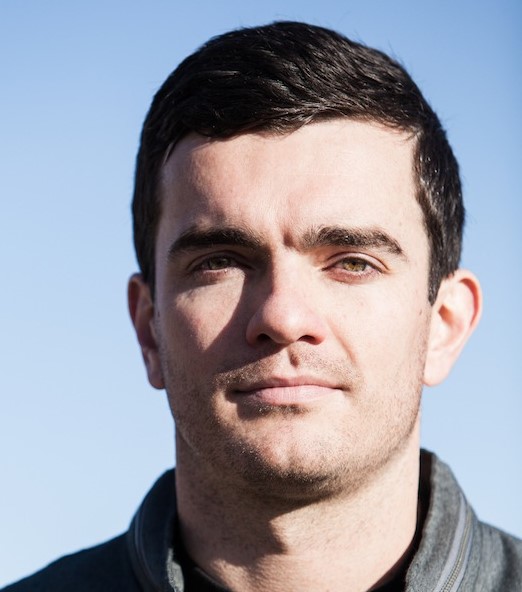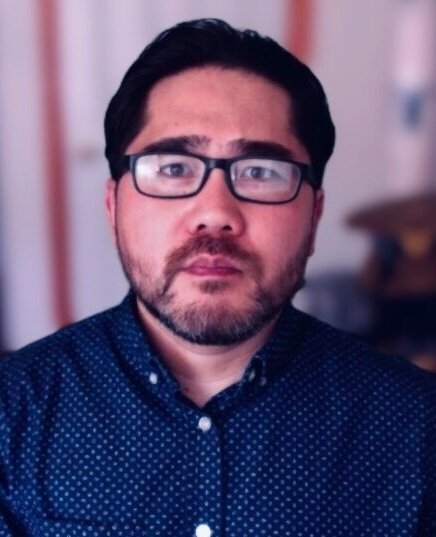Page 71 • (2,739 results in 0.028 seconds)
-
Photo by Dr. Rose McKenney Dear Pierce County, Over the last semester in my Environmental Studies 350 course at PLU, I began to truly appreciate the importance and impact of community. In a time of social distancing and virtual classes, the class’ rare physical sessions were a literal and metaphorical breath of fresh air. As we conducted our data collections at the Parkland Prairie, I could not stop thinking about the negative impact that our communities have had on other communities, both
-

returning to the orphanage where he was adopted as an infant, appearing live on Colombian television in his search for his biological family, reuniting with his biological mother, and being embraced by his biological family after 20 years apart. We recently connected with Taylor-Mosquera to learn more about his book, his experience writing and publishing it, and his future plans. Congrats on your new book. Tell us about it and the captivating title. The title of my memoir comes from meeting my
-

Guardian, Tin House, New England Review, DIAGRAM, ZYZZYVA, and many other publications, as well as anthologies including Best of the West and The Pushcart Prize. He was a Wallace Stegner Fellow at Stanford University and has a BA and MFA from the University of Arizona. He lives in Oregon and teaches at Oregon State University and the Rainier Writing Workshop. Mentor. Workshops and classes in fiction and nonfiction I want your work to be your own, so my approach to advising individual students
-

Magazine, and One World: A Global Anthology of Short Stories, and has been listed as notable in Best American Non-Required Reading and the Best Horror of the Year. He has previously taught at The College of Idaho, Southern Illinois University, and the Martha’s Vineyard Institute of Creative Writing. He currently teaches at St. Olaf College and resides in Minneapolis. He is at work on forthcoming novel, Girl Zero. More at http://SequoiaNagamatsu.com. Mentor. Workshops and classes in fiction. Statement
-

students studying abroad or participating in clubs or activities. When you graduate, you’ll be prepared for active citizenship and a variety of career opportunities, including library and information sciences, writing and social media, education, government service, jobs in technology, law, business, and more. How does it work? Class sizes are small and discussion based, with plenty of opportunity to read and evaluate materials from a diverse selection of writers and time periods. We use the latest
-

how it could affect paleontological resources,” Foss said. “We work on and review a lot of environmental impact statements and assessments, making sure they are adequate for paleontology. “We’re also really big in the planning and management process of public lands. If there is going to be a pipeline, right-of-way or an energy corridor that may affect a lot of paleontological resources, I get involved and explain how it will affect those resources or not affect them.” A natural maven, Foss’ role
-

. On any given day, I’ll see students writing equations on our whiteboards, relaxing in the lobby between classes or working with one of my colleagues to conduct research for a project — and all that’s not even counting the way that people engage with our online resources. I never know what brings someone to the library, but the library is a space for community, and as such also serves to reflect the interests of our community. I think there’s power in that. Are there particular PLU archives that
-
manner consistent with all applicable legal and ethical standards. All employees have a duty to report, verbally or in writing, promptly and confidentially, any evidence of improper practice of which they are aware. As used here, “improper practice” means any illegal, fraudulent, dishonest, negligent, or otherwise unethical action relating to university operations or activities. Employees must contact their immediate supervisor or Human Resources with knowledge of improper practice. When alleged
-
Philosophy professors. Dr. Sergia Hay teaches courses in applied ethics and the history of philosophy. Her area of scholarly specialization is Søren Kierkegaard, and she is an organizer/officer within the SOPHIA Organization. Dr. Mike Rings teaches courses in ethics, social and political philosophy, and environmental philosophy. He helps Dr. Hay create SOPHIA-sponsored events that enact deep conversations and dialogues. The purpose of the SOPHIA organization, as Dr. Hay stated in an interview, “is to
-

credit for: personalities, intelligence, language [and] feelings,” said Bergman, who’s working on a project titled “Speak, Parrot,” which details his conversations with the highly intelligent birds. “I love penguins because they are irresistible. I love them because they remind us so much of… US!” Bergman has a wondrous passion for the natural world and uses his mastery of the English language—and his camera—to capture it all. “I love to be in the company of wild animals, and [I] have used my writing
Do you have any feedback for us? If so, feel free to use our Feedback Form.


